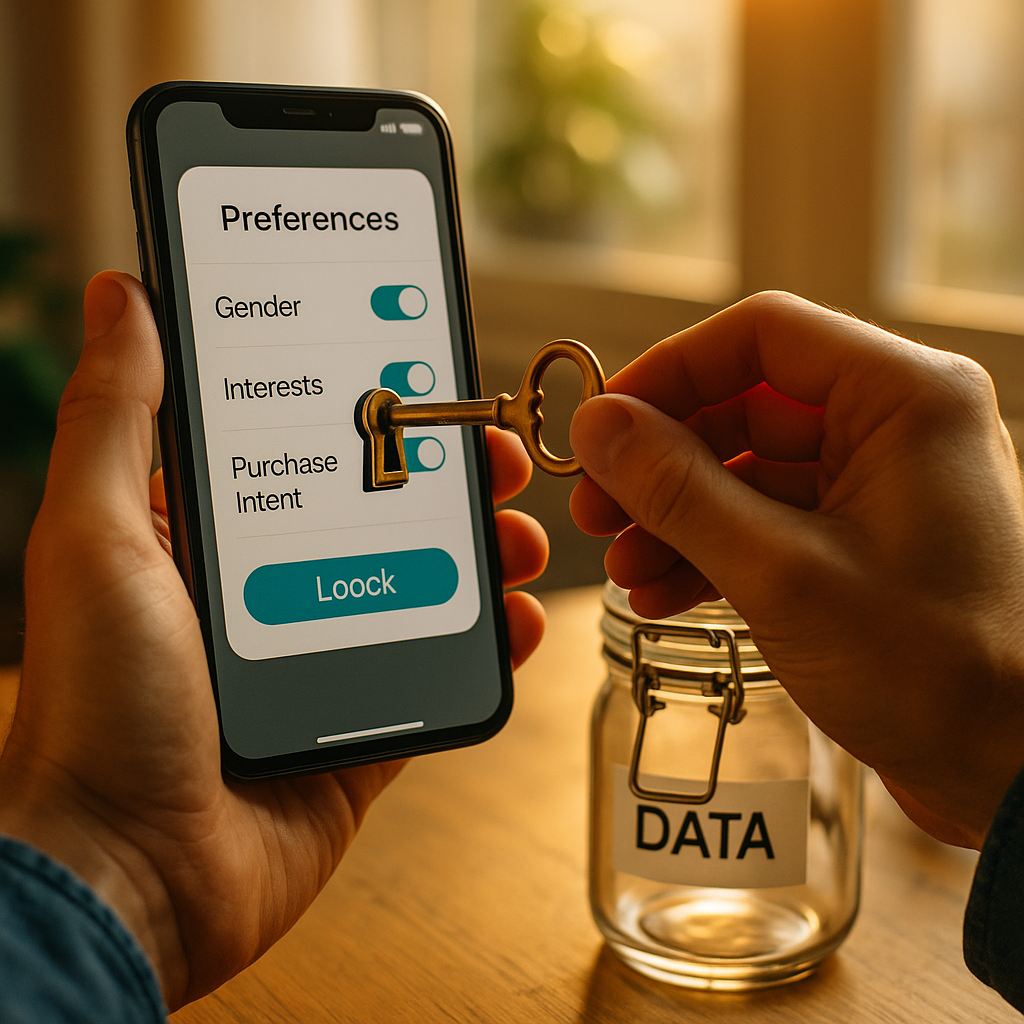Zero-party data has emerged as a game-changer in digital marketing by prioritizing privacy and personalization. As consumers demand more control over their information, brands are adapting how they collect and use data. The rise of zero-party data offers new ethical opportunities for customer engagement—here’s how your brand can collect it effectively and responsibly.
What Is Zero-Party Data and Why Does It Matter?
Zero-party data refers to information that customers intentionally and proactively share with brands. Unlike first-party data, which is inferred from consumer behavior, zero-party data includes preferences, interests, purchase intentions, and feedback explicitly volunteered by the customer. Its importance in 2025 is amplified by increasing privacy regulations and a shift away from invasive tracking methods such as third-party cookies.
Consumers now expect transparency and personalized experiences. According to a 2024 Global Data Privacy study, 73% of consumers are more likely to share data if brands are clear about how it will be used. Collecting zero-party data ethically not only helps brands build trust but also sharpens customer targeting and drives more relevant experiences.
Ethical Zero-Party Data Collection Strategies for Brands
Collecting zero-party data requires a thoughtful, customer-centric approach. Ethical data collection must focus on transparency, consent, and value exchange. Leading strategies include:
- Value-driven surveys and quizzes: Engaging customers with interactive content such as style finders or onboarding surveys allows brands to gather preferences while offering tailored recommendations in return.
- Loyalty and rewards programs: Facilitating program signups prompts customers to share information in exchange for meaningful perks or points.
- Preference centers: Giving users control over what information they share and how they receive communications increases trust and data accuracy.
- Conversational marketing: Utilizing chatbots or live chats to collect personal input during support or shopping experiences captures intent without overstepping.
Each interaction builds a transparent relationship where data sharing is voluntary, beneficial, and clearly understood.
The Impact of Zero-Party Data on Customer Personalization
Implementing zero-party data enables brands to elevate personalized marketing. Unlike algorithms that guess user needs, zero-party information offers accuracy directly from the source. For example, a beauty brand can recommend products tailored to a customer’s self-disclosed skin concerns. Retailers send hyper-relevant offers based on product interests stated during quizzes.
This level of personalization enhances customer satisfaction and reduces wasted marketing spend. Studies in 2025 demonstrate that campaigns powered by zero-party data see a 25% higher engagement rate versus generic campaigns. The mutual benefits foster loyalty and repeat business.
Building Consumer Trust Through Privacy-First Data Practices
Trust is the foundation of any successful zero-party data strategy. Respecting consumer privacy means:
- Explicit consent: Always request clear permission for any data collection, explaining its intended use in simple terms.
- Data minimization: Only ask for what’s truly necessary; this shows respect and reduces risk.
- Data security: Invest in robust security practices and compliance with the latest regulations to reassure customers their data is safe.
- Easy opt-outs: Allow people to change preferences or withdraw consent any time, building credibility.
Brands leading with privacy-first messaging and transparent disclosures consistently outperform competitors in long-term customer relationships.
Best Tools and Platforms for Zero-Party Data Collection in 2025
The latest technology solutions make ethical zero-party data collection seamless and scalable. Top platforms in 2025 focus on user experience, privacy, and compliance:
- Customer Data Platforms (CDPs): Tools like Segment or BlueConic centralize and manage self-reported data for consistent personalization across channels.
- Survey and quiz builders: Interactive tools like Typeform or Qualtrics allow brands to design dynamic, customer-friendly experiences while capturing granular preferences.
- Loyalty program software: Modern programs provide in-depth customer profiles through transparent value exchange structures.
- Preference management centers: Integrated directly into websites or apps, these centers empower users to update data and consent continually.
When choosing technology, prioritize platforms with privacy certifications and customizable consent management features to future-proof your data strategy.
Future Trends: The Evolving Role of Zero-Party Data in Marketing
As AI becomes more sophisticated and data privacy remains paramount, zero-party data will anchor the future of marketing. In 2025, expect to see:
- More immersive data exchange: Brands will use virtual experiences and AR to invite data-sharing naturally within engaging contexts.
- Dynamic personalization algorithms: AI and machine learning will leverage self-disclosed preferences for real-time content adaptation.
- Transparent data marketplaces: Consumers may receive incentives to share data, with clear value propositions and control over who accesses their information.
The ongoing evolution will reward brands that prioritize ethical, mutually beneficial data relationships—keeping privacy and trust at the heart of every initiative.
FAQs About Zero-Party Data and Ethical Collection
-
What’s the difference between zero-party and first-party data?
Zero-party data is intentionally shared by the customer, such as preferences and intentions. First-party data includes information brands infer from customer interactions, like purchase history or browsing behavior. -
Why is zero-party data important for brands in 2025?
With stricter privacy laws and the decline of third-party cookies, zero-party data enables brands to deliver personalization while honoring customer consent and privacy. -
How can brands encourage customers to share zero-party data?
Offer clear value in exchange—personalized recommendations, loyalty rewards, or exclusive content. Transparently communicate how the data will enhance their experience. -
What are common mistakes to avoid in collecting zero-party data?
Avoid collecting irrelevant details, using complicated forms, or failing to explain why the data is needed. Lack of transparency or difficult opt-out processes erode trust. -
Is zero-party data collection compliant with privacy regulations?
Yes, when brands obtain explicit consent, practice transparency, and comply with laws like GDPR and CCPA, zero-party data collection aligns with global privacy standards.
Zero-party data is transforming how brands personalize engagement in a privacy-centric world. By collecting it ethically—always prioritizing transparency, consent, and security—your brand not only earns trust but also delivers unparalleled value to customers. Adopt these best practices to shape sustainable customer relationships and future-proof your marketing strategy in 2025 and beyond.
